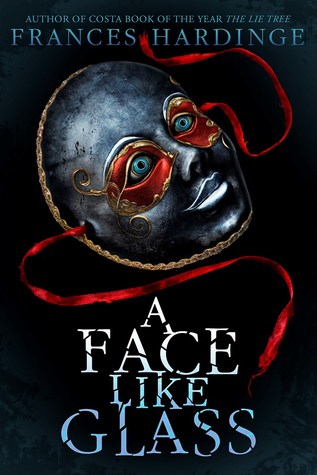6 book recommendations from this year so far:
A Face Like Glass and The Lie Tree by Frances Hardinge
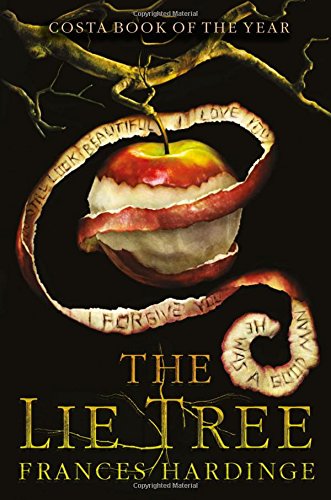
Wow. Recommended for anyone, except small children.
Hardinge is perhaps the best children’s/young adult author I’ve ever read (there’s also Diana Wynne Jones. Tolkien if you put him in that category. Elizabeth Marie Pope if she’d written more than two books). If you want to send me a gift (shipping only $100!), send me Gullstruck Island.
A Face Like Glass and The Lie Tree were both pretty much flawless; easily my favourite two books I’ve read this year. Books are most wonderful when they are fully enchanted (easier for children’s books, I think); when the enchantment infuses through the characters, the phrasing of words, the world-building. Hardinge’s imagination must be unlimited; she excels at all of the above. Her books are moving, horrifying, beautiful, and completely original.
A Face Like Glass ekes out as my favourite book of the year because of the setting: an underground city where expressions must be worn like masks. The Lie Tree is a sombre fantasy set in 19th-century England. No spoilers here; go read them now.
Middlemarch by George Eliot
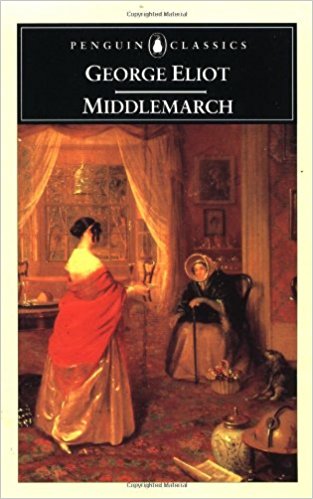
I have never immediately identified so much with a character as Middlemarch’s Dorothea Brooke. And I cringed. I am glad that my pious, idealistic 19-year-old self had no chance to make disastrous marriage decisions, because I could completely empathize with why young Dorothea thought the way she did, made the decisions she did, wanted to throw herself wholeheartedly into an intellectual and philanthropical ideal. I even found a somewhat convincing article arguing she is an effective altruist, but I think what the reviewer got out of the book was overly simplistic (which tends to happen if you look at everything through cost-benefit analysis).
George Eliot is brilliant. I don’t even know where to start with a review; someone out there has probably said everything about Middlemarch much better than I could. Also, this time around, I could not give it the time and thought it deserved. The last book that made me feel like I’d been dunked me in a half-frozen pond was Shusako Endo’s Silence (or arguably Toni Morrison’s Jazz, but I read that over so many times I began to become accustomed to that pond). Chilling and uncomfortable, but you see life more clearly. The veil over your eyes has been shocked off. What is mediocrity? What is a life well-lived? I suspect I will revisit this book over and over.
Heroine Worship by Sarah Kuhn
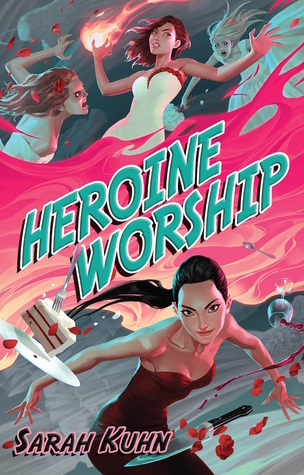
This is not *deep literature*, but I’m pretty sure it was written for me. It’s the second of a humorous series about superhero women fighting evil forces. Think comic books in narrative form. Would recommend reading the first in the series, Heroine Complex, first: it includes cupcake demons and spam musubi in the first few pages. The series is endlessly entertaining, the books I wish I could write and think maybe I could if I were funnier and more creative (alas). Even though like ten people read my blog, I want to give Sarah Kuhn that little more exposure. These books do something new and different in New Adult literature, much better than trite romance.
(Warning for mom: You’d probably be entertained by this series, but it does include profanity and “thematic elements”).
Invisible Cities by Italo Calvino (and Einstein’s Dreams by Alan Lightman)
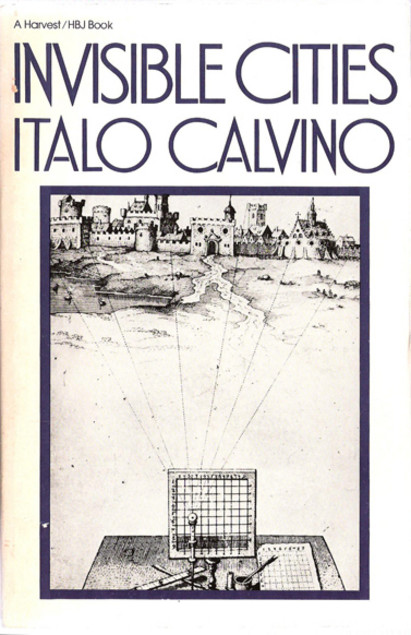
I read Einstein’s Dreams on a long M2 shuttle ride last summer and loved it. When I heard it had been inspired by this book, I needed to go find it. Reading this in ebook format was somewhat of a loss—this book seems like it needs to be smelled, held as something physical as each city with its odd quirks and woman’s name. Also, the italicized bits are headache-inducing on a computer screen. Definitely recommend: it is a gorgeous book, and because of the format can be traveled through out-of-order after you finish.
Why did I prefer Einstein’s Dreams? Maybe because I’m fascinated by time over place. Maybe because it is set in Bern, where I spent two of my favourite days in recent memory. Maybe it’s because slowly gliding through Boston’s streets in midsummer is more romantic than sitting on some floor in Lusaka in midsummer six months later. I’m not sure. Read both.
The Shadow of the Wind by Carlos Ruiz Zafón

This is my least-favourite favourite book of the year. I’m recommending it because it’s still haunting me and I suspect some people will enjoy it tremendously. It has a gorgeous language and the setting; a beautiful run-through theme of the power of books and words and stories. The first about two-thirds were almost as good as A Face Like Glass. The last third was full of melodrama. I could stand the contrived coincidences in A Tale of Two Cities; the ones in this made me actually made me bang my head against the wall. But it’s a good enough, and memorable enough, book that I think my final reaction might’ve been unfair, and I want someone to convince me to love it.
Honourable Mentions:
Midnight Riot (Rivers of London) by Ben Aaranovitch
Reminded me a lot of Heroine Worship in that it’s fast-paced, comic book-esque, about funny happenings with otherworld stuff (“urban fantasy”, apparently). It’s also in a vacuum probably a better book than Heroine Worship, but I am an embodied human, product of her culture and time, so I am allowed to like Heroine Worship more. Overall entertaining with an interesting mythology, but not amazing enough that I tried to track down the 6-book (?) series immediately.
The Weight of Ink by Rachel Kadish
I can’t recommend this in good conscience because I only cared about half the story: the one about the old-school Jewish lady scholar writing to Baruch Spinoza. It was wonderful and we need more engaging philosophical novels (any recommendations)? I completely gave up reading the sections about the modern people, because modern people are boring compared to 17th-century philosophers of religion, you know?
The Final Empire by Brandon Sanderson
I read this in two days as it was about to expire, and I think it was the case of “it’s not the book, it’s me/the situation”. I have less patience than I would like for door-stopping fantasy novels. Mistborn>Elantris, but the best Brandon Sanderson series will always be Alcatraz and the Evil Librarians.

